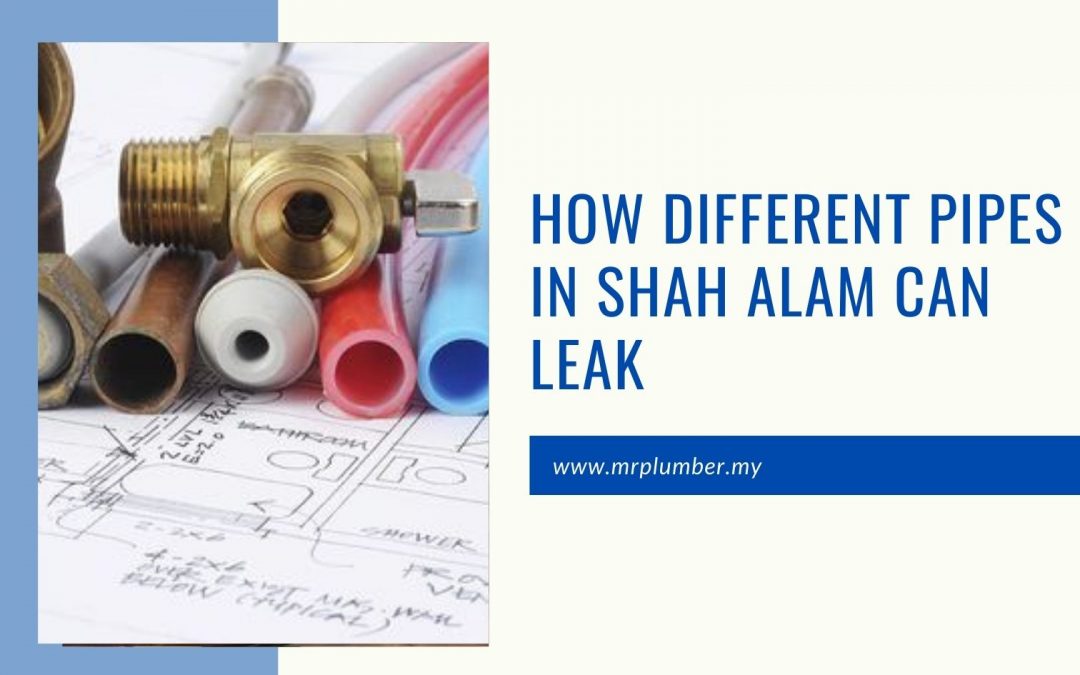No matter what type it is, all pipes are designed to eventually fail due to prolonged use, environmental influences, and normal wear and tear. Ultimately, nothing is built to last indefinitely, particularly pipes which are highly prone to damage.
Having knowledge about how certain types of pipes can leak can be helpful so as to be properly informed of measures of keeping them for long.
Here’s a general guide for all types of pipes in Shah Alam and their leak potential:
- Pipes, regardless of type, need a pipe hanger or straps. This helps ease the stress on the pipes and prevent damage especially water leaks.
- High pressure can damage your pipe especially the small ones and those made with copper.
P.S. Leaking pipes? You can now hire a Shah Alam plumber here. Just contact us and our team will assist to arrange everything for you from scheduling to providing you a customized plumbing solution.
Table of Contents
Common Types of Pipes and their Leak Potentials
Copper
The first common type of pipe in this list is made of copper. A copper pipe is prone to pitting and erosion-corrosion.
The most common leak you’ll see in your copper pipe is primarily caused by small holes or cavities called pinhole leaks caused by the process of pitting corrosion. This type of corrosion happens for several reasons that it’s actually difficult to point to one specific culprit. However, water chemistry is mostly pointed to as the reason behind this. Acidic water is one of the examples.
On the other hand, erosion-corrosion happens when something mechanical happens that contributes to the degradation of the material, eroding the layers inside of the pipe that later causes leaks. A bad cut, too much soldering, and even stray current from the electrical system grounded to the copper plumbing system can accelerate this type of corrosion.
The exterior of a copper pipe can also get damaged due to external factors like soil quality. This is especially true to copper pipes that are buried in soil high in sulfates, chlorides, and other chemicals.
Galvanized Steel
Galvanized steel was commonly used in homes but has slowly become unpopular because of its susceptibility to galvanic erosion.
This type of erosion happens when two dissimilar metals are combined together—galvanic steel and copper, for example. In the process, one of the metals corrodes faster thereby causing damage to the whole plumbing system. Unfortunately, it is the galvanic steel that degrades and corrodes faster making it the least choice for homeowners.
Another issue with galvanic steel pipes is their threaded ends which are unstable when connected, causing rust and then leaks later.
Cast Iron
Just like any other pipes made from metals, cast iron is also subject to corrosion. However, the type of corrosion that happens with your cast iron pipes can be excessive that there is no to little you can do about it.
In fact, cast iron has not been recommended by most plumbers because of this issue. While it can be prevented or alleviated, it is still wise to choose the ones with the best quality for long-term savings.
Cast iron can be heavily corroded that physical force or accidents can damage it and cause water leaks.
Plastic
Though not susceptible to corrosion, water leaks can also happen with plastic pipes.
Plastic pipes are meant for cold water as hot water can soften them, although some specialized pipes like CPVC and ABS can tolerate hot temperatures of up to 200 °F and 180 °F, respectively. So, if you’re using PVC, know that it is only meant for supplying cold water, or else, you’ll have to expect your pipe to fail in no time.
Plastic pipes are also vulnerable to cracks especially when both ends are connected very tightly. This can cause leaks as water will likely pass through the cracks.
Although rare, some make use of threads meant for metal pipes to connect plastic pipes, which can also cause leaks.
Plastic pipes, like PVC, CPVC, and ABS, can also get damaged from over-exposure to the sun, so it’s best to keep them out of it.
Related Post:
Final Thoughts
Regardless of the type of pipe you have, leaks can happen especially if the pipe’s quality begins to degrade. As there are many factors that contribute to the degradation of these materials, it is best to know what you can do to help lengthen your pipes’ lifespan. Not only will you save money in the long run, but you’ll also be free or at least experience minimally the hassle of a broken pipe.

